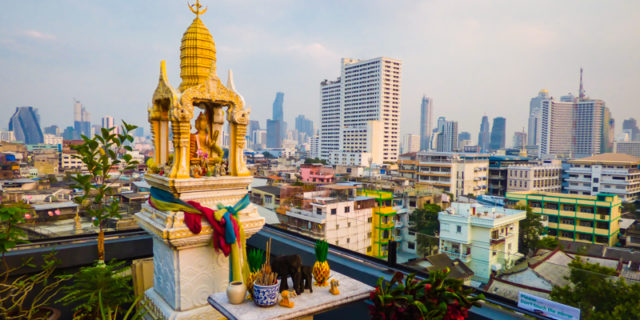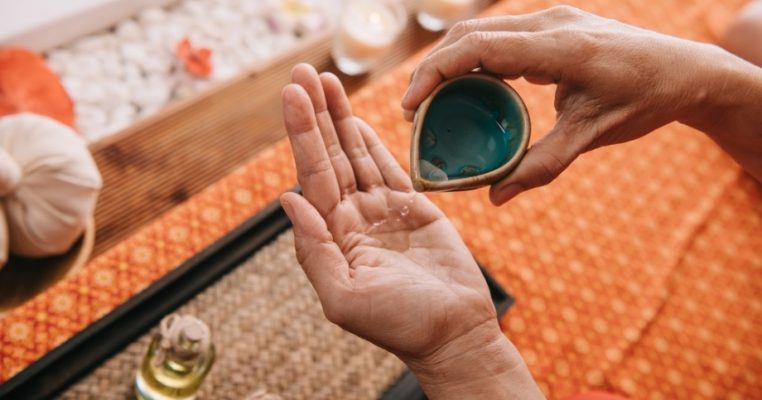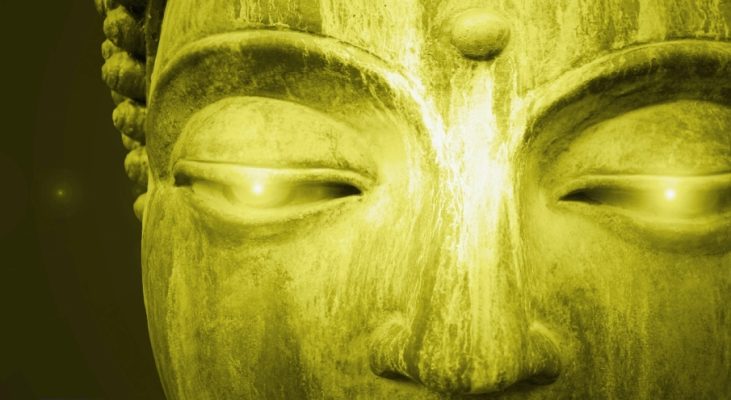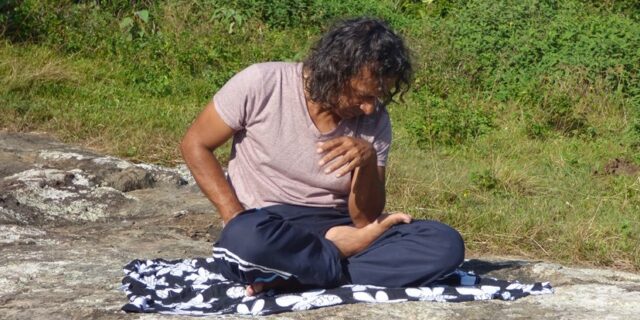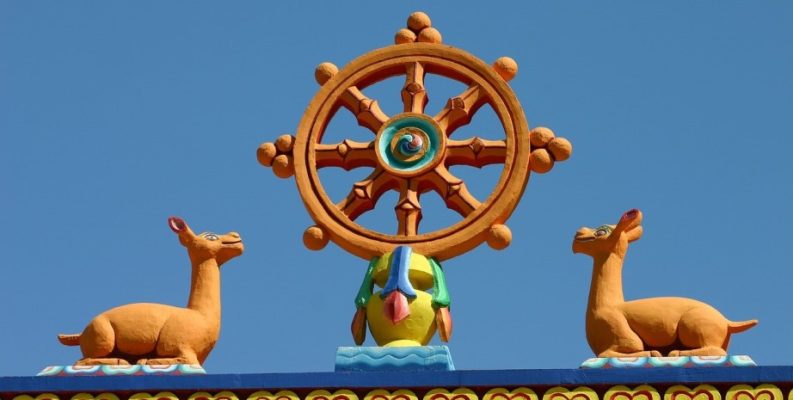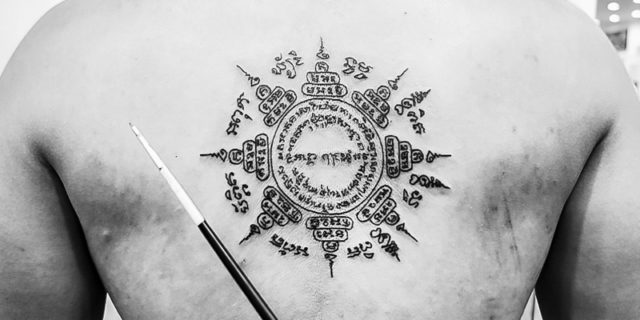
Dhamma (Pali language), which is also known as Dharma (Sanskrit language), is an Indian spiritual concept that can have many different meanings depending on the context and depending on the specific Indian religion, such as Buddhism, Hinduism, Jainism, and Sikhism.
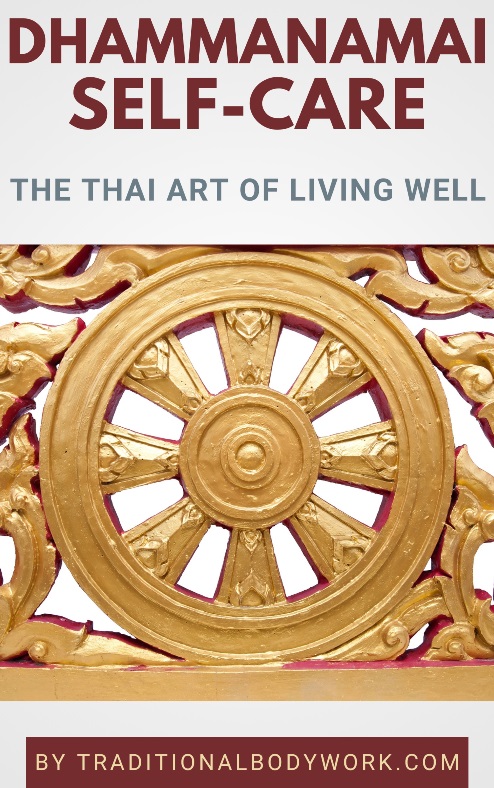
It can mean “right behavior,” “right way of living,” “virtue,” “religious and moral duties,” “truth,” “wisdom,” “fitness,” “the natural condition,” “custom,” “law,” “nature,” “practice,” obligation and righteousness,” “cosmic order,” “good works,” just to name a few denotations.
In relation to Buddhism, Dhamma would typically refer to the Buddhist teachings as a whole, the ethical precepts of Buddhism and the appropriate way of life and behaviors, the essence and goal of Buddhism, Supreme Reality, Cosmic Law and Order, Spiritual Enlightenment (Nirvana), and following the Noble Eightfold Path.
In Thailand, where the form of Buddhism is predominantly Theravada Buddhism (a major branch of Buddhism), Dhamma is part of the Triple Gem (Three Jewels or Triratna) which is known as: the Teacher (the Buddha), the Teaching or Message (Dhamma), and the Monastic Community (the Sangha).
How important the Triple Gem is in Thailand can be easily witnessed throughout the country; Buddhist statues and temples, Buddhist monasteries, and Buddhist teachings are deeply integrated in the Thai people’s daily lives.
In Theravada Buddhism, it’s thought that following the Buddhist Dhamma (teachings) is achieved in three steps or phases: learning, practicing, and realization. That is, learning the theory of Dhamma, putting the theory into practice, and finally realizing the supreme truth of it.

In practice, Dhamma in Thailand means making an effort to adhere to the Buddhist teachings, which include things like doing good works (“making merits”), living a balanced life (one that avoids extremes and takes both material and spiritual aspects in consideration — the Middle Way or Noble Eightfold Path), tolerance, calmness of mind, engaging in Metta (Loving Kindness) and Karuna(Compassion), and practicing meditation.
In addition, we can also observe the application of Dhamma in the Thai Healing Arts. Thai Massage, for instance, is often considered the application of Metta (Loving Kindness). Another example is Thai Dhammanamai, which is the ultimate integration of Buddhist Dhamma and Buddhist Medicine emphasizing holistic balance, moderation, meditation, Metta, and Karuna.
In a more general sense, one could say that the Thai consider Buddhism a moral-religious philosophy that shows us how to live one’s life (Dhamma), which is notably done by accepting the Four Noble Truths and subsequently following the Noble Eightfold Path.









